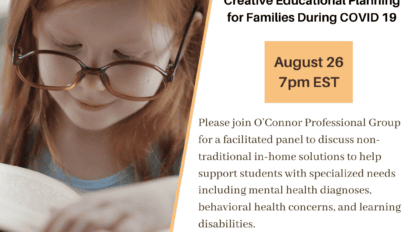Knowing Your Options: Finding a Recovery Program that Works for You

Knowing your Options
In the world of addiction recovery finding a supportive community or program can go a long way in aiding in the healing process. Whether you are the individual struggling with substance abuse or it is a loved one struggling, there are programs out there to help. Finding the right support is not always the simplest of tasks. The twelve step model of Alcoholics/Narcotics Anonymous has saved countless lives since it was founded in the 1930’s and continues to do so to this day. It is a highly assessable program with over 100,000 meetings worldwide. However, the complex nature of substance abuse problems means that the twelve step model is not always right for everyone. Far too often these families and individuals feel as if they have to take on their substance abuse problems alone and don’t realize the alternative or adjunct support options that are assessable.The following are the most widely available alternatives to the traditional twelve-step model.
Read more about our Intervention Services.
SMART Recovery:
SMART (Self-Management and Recovery Training) is a program that is rooted in evidence-based treatments. It draws from Cognitive-Behavioral approaches and Motivational Interviewing. SMART Recovery does not have static principles and allows its program to evolve as scientific knowledge evolves. It a resource recognized by multiple professional organizations, including the National Institute on Drug Abuse and the American Society of Addiction Medicine. SMART is based on a four-point program (1) building and maintaining motivation; (2) coping with urges; (3) managing thoughts, feelings, and behaviors; and (4) living a balanced life. SMART is an abstinence based program but welcomes those who are still ambivalent about quitting substance abuse. SMART also offers on-line meetings in addition to its traditional in-person meetings. More information can be found at smartrecovery.org.
Rational Recovery:
Rational Recovery is a worldwide source of counseling, guidance, and direct instruction on self-recovery from addiction to alcohol and other drugs through planned, permanent abstinence. The group believes that individuals are on their own in staying sober, so there are no meetings or treatment centers as part of the approach. The website provides information about the method (Addictive Voice Recognition Technique (AVRT)), frequently asked questions, free information for those trying to stay sober, as well as their families, and information about subscription based services. More information at Rational.org.
LifeRing Secular Recovery
LifeRing is a network of support groups for people who want to be free of alcohol and addictive drugs. They are a group for individuals who have learned through experience that the only solution that works is to abstain completely. They see the power to get clean and sober inside each person. Through the positive reinforcement of the group process, that power becomes dominant in each and enables them to lead clean and sober lives. The website provides information about the group, including frequently asked questions, publications, an online forum area for support, and links to local meetings. More information at lifering.org.
These are just three examples of the recovery programs that are available today. All of these programs are designed to help and none need be mutually exclusive. The best treatment program is the one that works for you. The path to recovery is different for all individuals and knowing the options that are available can help you build the program that is right for you.

